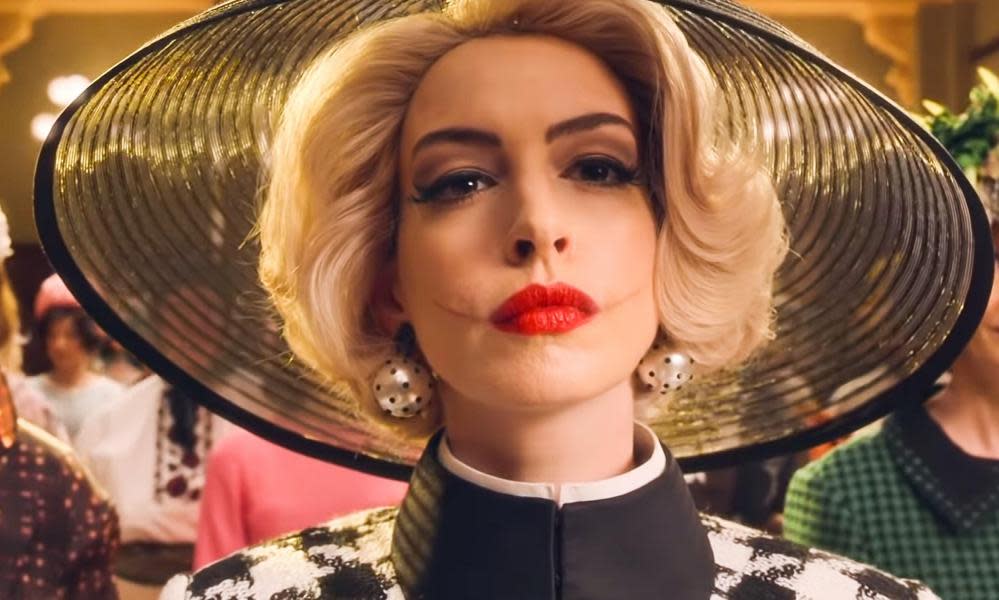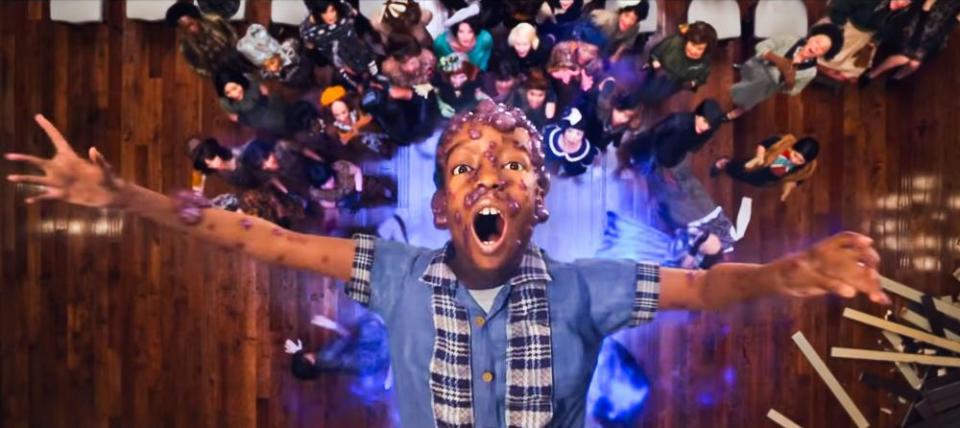The Witches review – Roald Dahl reboot fails to cast the original's magic spell

Who did Roald Dahl hate more: grownups or children? Kingsley Amis says that Dahl once told him to try writing for children and when Amis said his heart wouldn’t be in it, Dahl replied: “Never mind, the little bastards’d swallow it.” The issue of Dahl’s attitude towards his readership is revived once again with director Robert Zemeckis’s “reimagining” of Dahl’s story The Witches, first published in 1983 and filmed by Nicolas Roeg in 1990 with Anjelica Huston as the incognito Grand High Witch who convenes a sinister children’s charity event in a hotel ballroom.
Now Zemeckis has collaborated with Guillermo Del Toro and Kenya Barris on the screenplay for another version, absorbing some of the earlier film, although why exactly this process has to have the grand label of “reimagining” isn’t clear. Apart from a few shifts in period and location, and narrative tweaks bringing it slightly closer to the book than Roeg, it’s a pretty conventional adaptation. (The boldest reimagining of Dahl was surely Wes Anderson’s animated version of Fantastic Mr Fox.)
We are now in late-60s America, and a little kid called Charlie (played by Jahzir Bruno) is orphaned when his mum and dad are killed in a car crash: he was wearing his seat belt and they weren’t – although evidently that lesson is unlearned, judging by a car journey later in the action. His grandma, played with an easy charm by Octavia Spencer that rescues the film a bit, now has to look after him, and she takes the boy to her house in Atlanta. But while they are out grocery shopping one day, a creepy green-clad witch (Josette Simon) sidles up to Charlie with a proffered sweet in the quasi-paedophile manner that signals witchy horror, and the grandma realises that with witches about, they must remove themselves to a place of safety. This turns out to be a very fancy seaside hotel with an oleaginous manager, Mr Stringer, played by Stanley Tucci. But it is at this very place that all the witches are going to convene, disguised as grand society ladies hosting a charity event for the prevention of cruelty to children, led by the awful Grand High Witch.
She is played by Anne Hathaway, doing a comedy accent that at first sounds eastern European or Russian but later becomes more obviously Scandinavian or Norwegian, closer to the story’s origins. She has freaky Joker-style scars at the corners of her mouth that open out at moments of stress into CGI-style horror. Like all witches, she hates children and is on a never-ending mission to turn them into mice, using a secret potion which she can put into these kids’ beloved chocolate.
Our young hero befriends a plump young English boy, a roly-poly fellow called Bruno (Codie-Lei Eastick) in Bunteresque tailoring who appears to be imported from the original Dahl British milieu, and they both face an awful transformation. Yet the weird thing is that Charlie happens also to own a mouse, and after a while the secret behind this pet mouse’s identity seems reasonably clear, relating to a flashback incident from the grandma’s own childhood – and yet the film doesn’t spell it out. Are we waiting for a sequel?

The problem is that Hathaway’s Cruella De Vil character comedy turn is pretty strained, certainly in comparison to Spencer’s gentleness and calm. There is one nice line in the script, a gag about Charlie’s reluctance to talk with his mouth full in front of his disciplinarian father, and I quite enjoyed the strange echoes of Tom and Jerry and Stuart Little. But for me there is something very broad and slightly frantic about the comedy here, in a movie whose plush interiors always look as if they have been created with greenscreen, even if they haven’t. The transformations and flights of fancy are strident and startling in their way, and yet don’t feel like liberations of the imagination in the way that I think they are supposed to.
In the end there is a strange nihilist grumpiness in The Witches: not so much the charge of misogyny that is sometimes levelled against this tale, but the sense that (with the exception of the grandmother) the grownups are useless or malign and the children themselves perhaps have more purpose to their lives once they are transformed into mice. The spell does not get cast.
• Released on 22 October on HBO Max in the US, and 26 October on digital formats in the UK.


